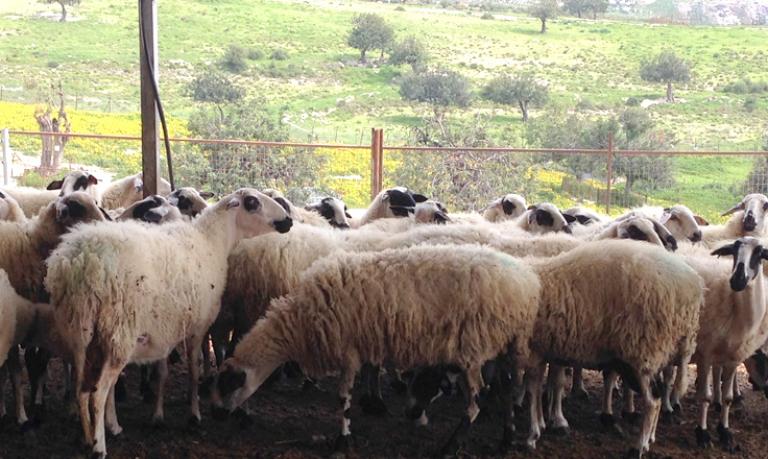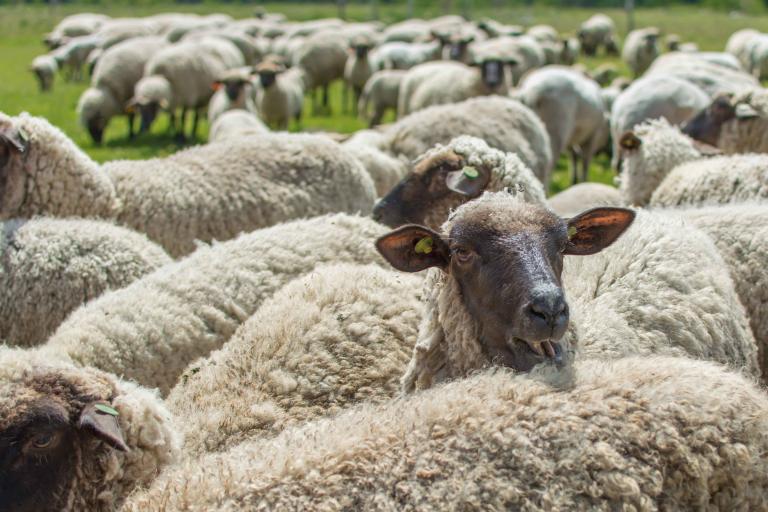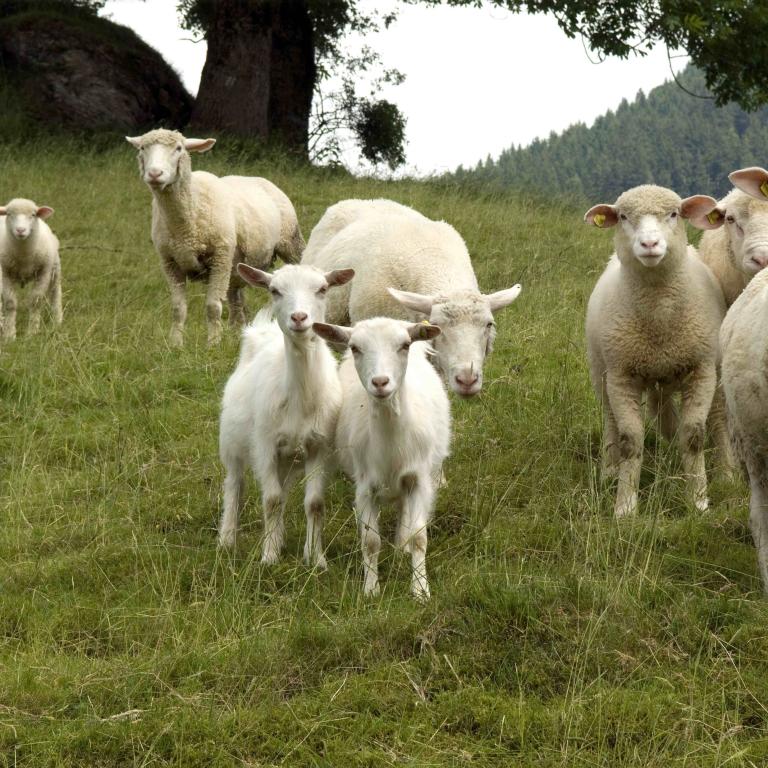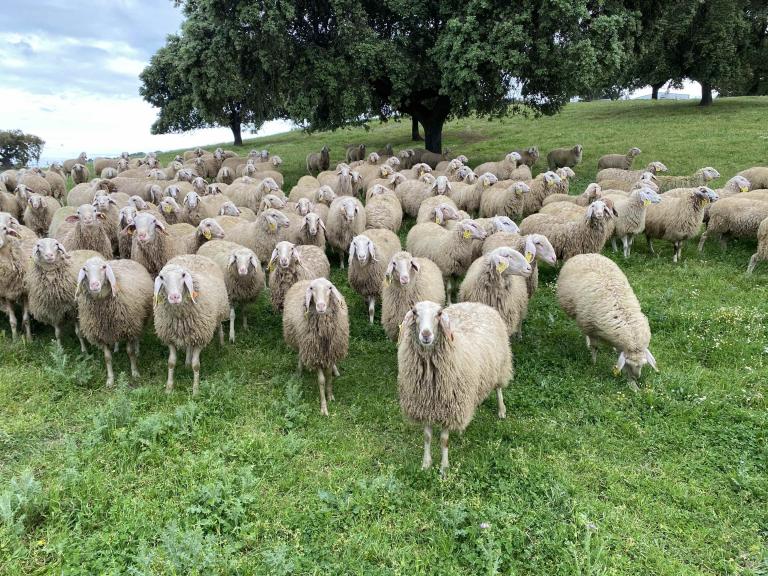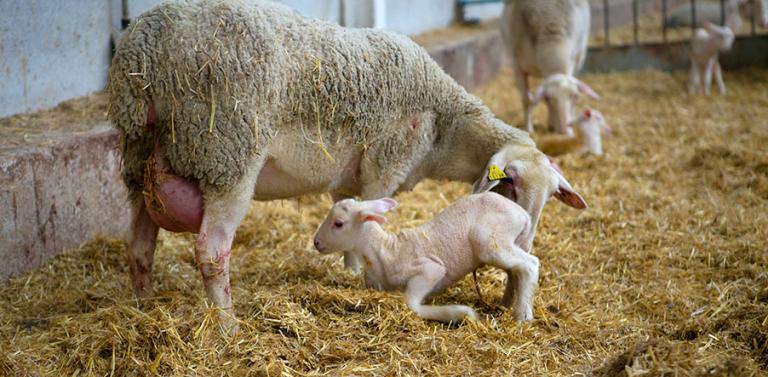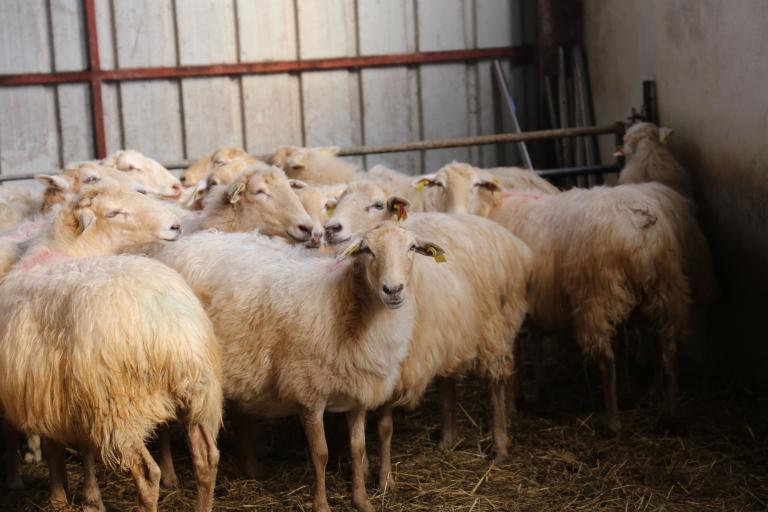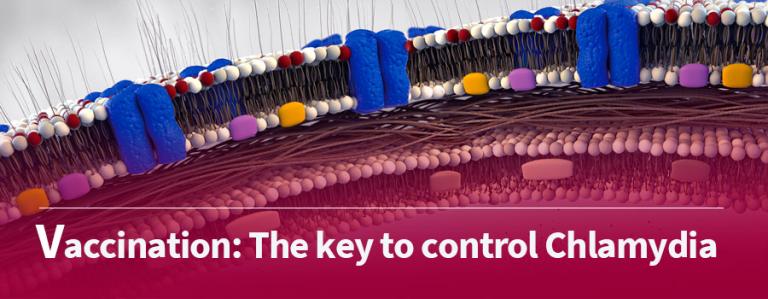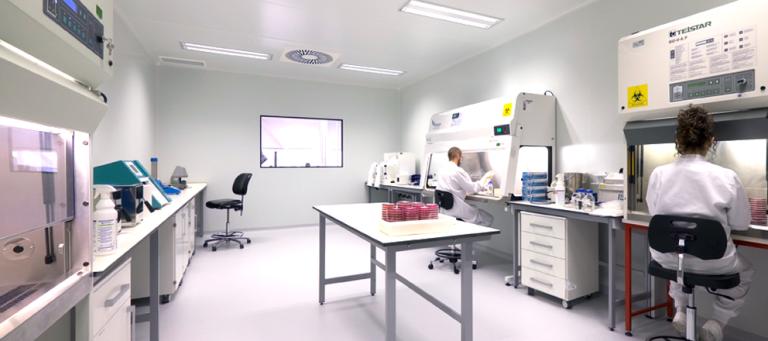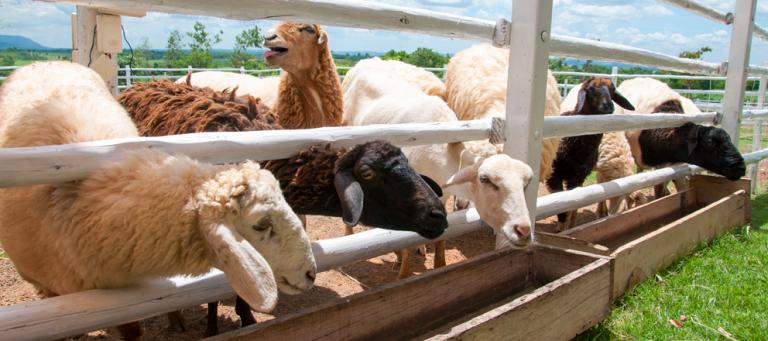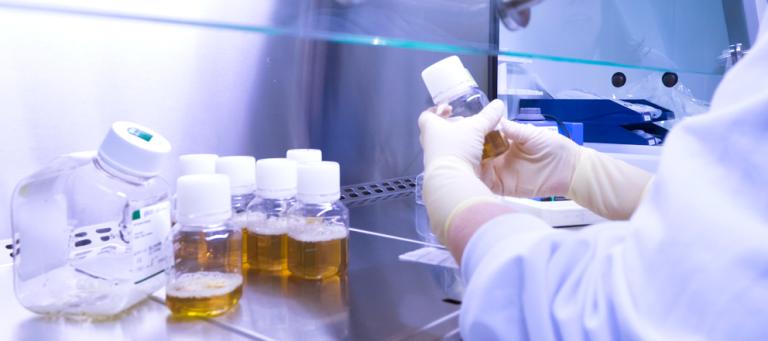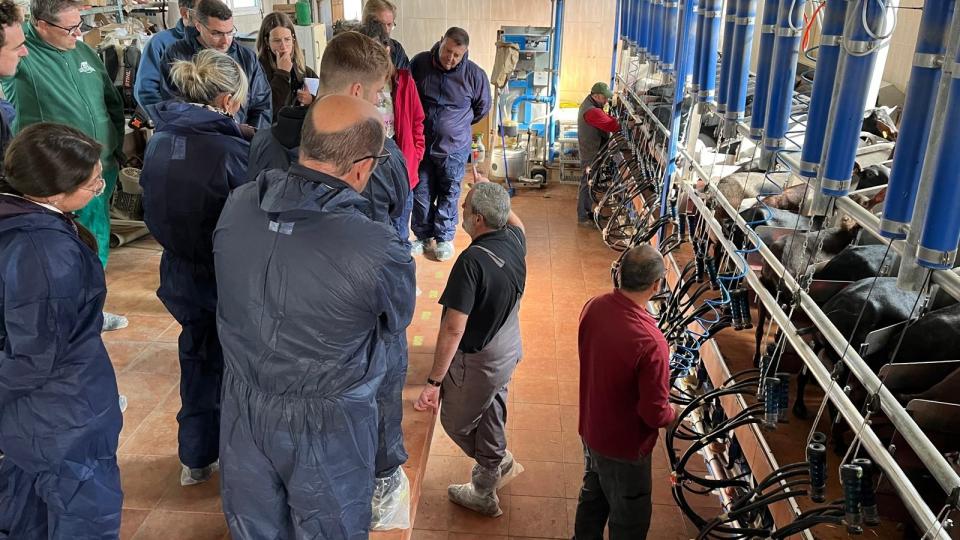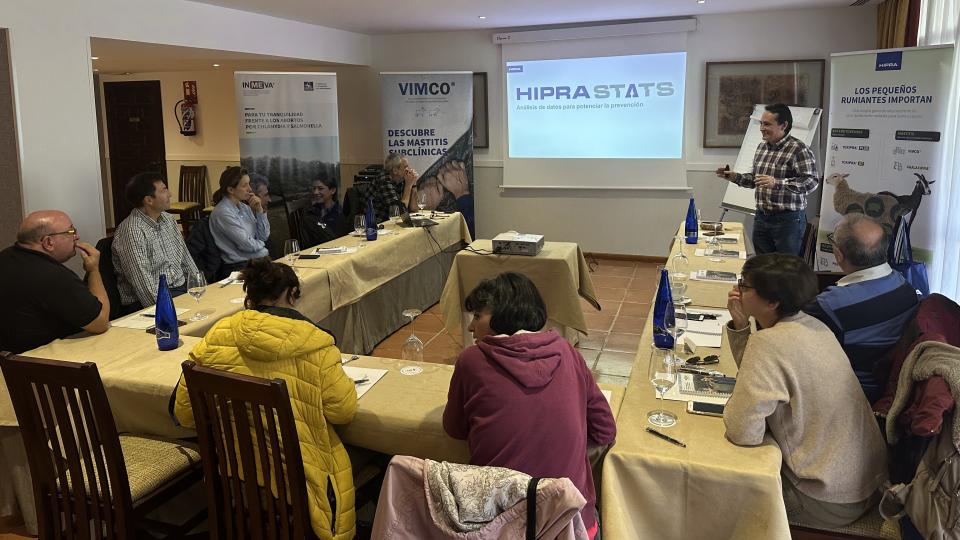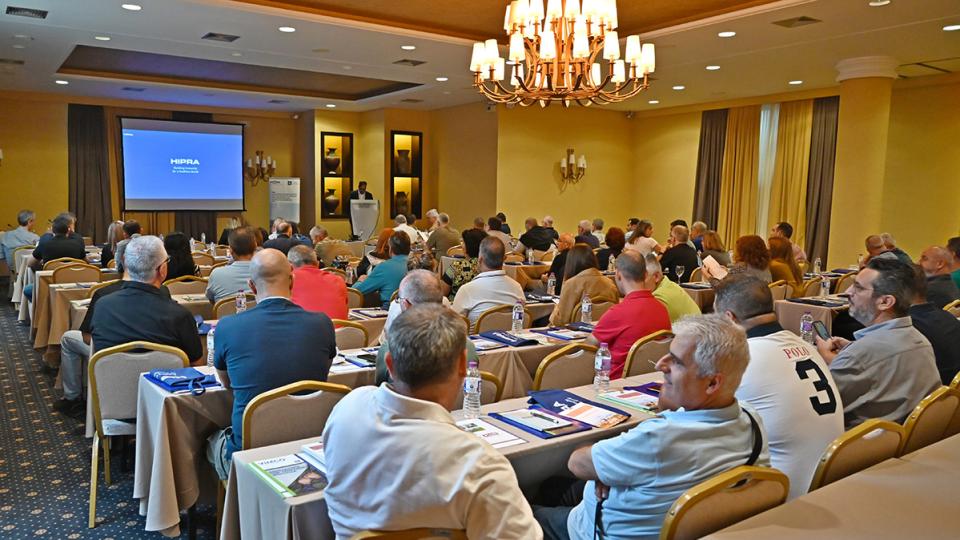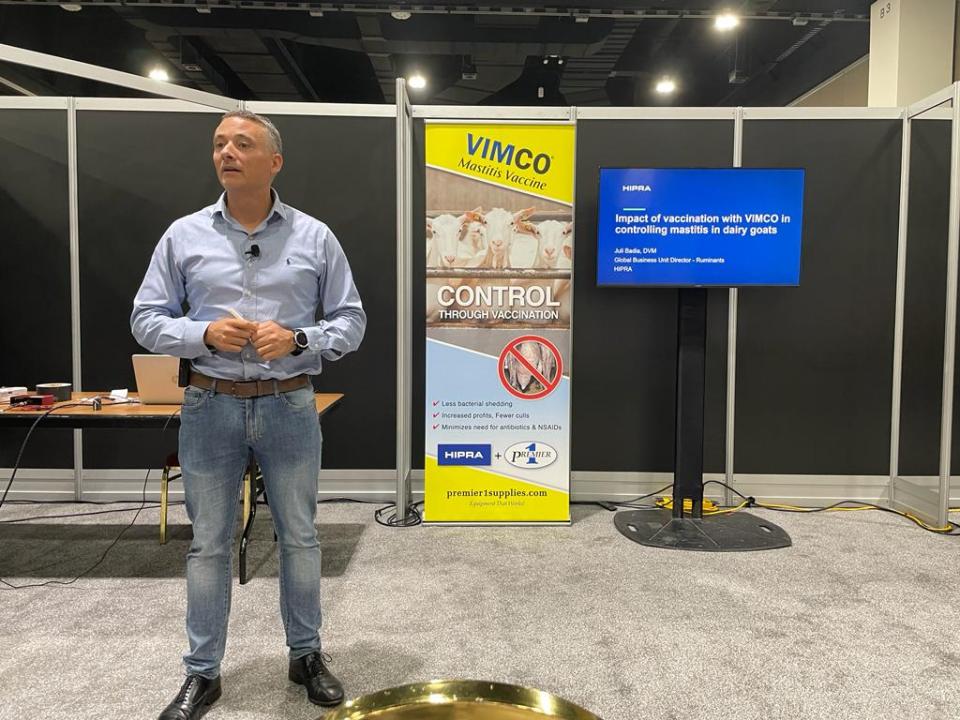The HIPRA symposium was held on 8th March last as part of the official programme of the 10th International Sheep Veterinary Congress (ISVC) that took place in Seville from 6th to 10th March. During the session, some of the main tools available to reduce the use of antibiotics on farms were set out.
HIPRA symposium at the ISVC: Prevention strategies in small ruminants for reduction of the use of antibiotics

In a presentation entitled “Strategies for prevention from the first day of life: key to the reduction of the use of antibiotics”, Miguel Ángel Sanz, HIPRA Small Ruminants Technical Service and Pablo Núñez, Franchise Manager at HIPRA, gave a review of the principal infectious diseases that may be encountered in sheep and goats from the first day of life and what preventive tools we have at our disposal to manage them.

From a practical perspective, the speakers talked about how we can prevent and control some of the most common diseases on small ruminant farms, such as neonatal diarrhoea, the ovine respiratory complex, contagious agalactia, ovine enzootic abortion and mastitis. Management, biosecurity and vaccination programmes have been shown to be key to achieving a reduction in the use of antibiotics and also to improving profitability and the optimisation of production.
Within the context of the new EU Regulation, the aim of which is to promote the rational use of antibiotics in order to reduce the development of antimicrobial resistance, the implementation of these preventive measures is essential. And although this situation is specific to Europe, there is a trend for more and more countries to adopt this policy. HIPRA has been working towards this for many years, focussing on prevention, as evidenced by our current product portfolio.

The session, which was open to all congress participants, brought together some 600 professionals from a variety of countries. The current context, specifically the need to reduce the use of antibiotics, can present a challenge in sheep and goats. HIPRA has shown great support for the small ruminants sector, having launched new vaccines for sheep and goats on to the market in recent years. It also offers these training sessions focussing on prevention, with the aim of helping professionals in the sector to meet their objectives.
